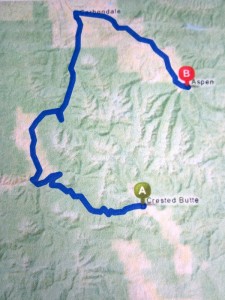 In recent years many of us have learned to ask questions in a new way. It goes something like this: “Would you like such-and-such, or no?” We don’t simply say, “Would you like such-and-such?” We add “…or no” to force the questionee to come forth with a neat and tidy answer. Subconsciously we want them to commit to yes or no, because the in-betweens can get complicated.
In recent years many of us have learned to ask questions in a new way. It goes something like this: “Would you like such-and-such, or no?” We don’t simply say, “Would you like such-and-such?” We add “…or no” to force the questionee to come forth with a neat and tidy answer. Subconsciously we want them to commit to yes or no, because the in-betweens can get complicated.
I’m ashamed to say sometimes I do the same thing to God. “Lord, do you want me to do this certain thing, or no?” I want a clear-cut response, because I don’t do well with “maybe” or “wait a while” or “we’ll see.”
The other day I received an email from our oldest son, Nelson, who is currently making his way from Russia’s Siberia to our home in Michigan. In the email he described an important decision he needed to make and as always, was asking God what to do. To quote Nelson:
So my prayer was, “Is it this or is it that?” And the answer was, “Neither.”
And therein lies the trouble with giving God an “either-or” choice. Because none of us know what’s about to happen, the best we can do is guess at a couple of possibilities. Asking God to make it “this-or-that” is like asking a child to draw a rainbow with black and white crayons.
God’s answers to prayer come in all colors, and he won’t be boxed in by our desire for black-and-white answers. Maybe the best way to ask for his opinion is with open-ended questions:
- What should I do about this dilemma, Lord?
- How do you want me to view these unexpected circumstances?
- Which of your promises should I cling to during this crisis?
Answers structured by God will always outshine those we put to him requesting “this-or-that.” Nelson’s comment about God answering him with “neither” turned out to be the beginning of an important conversation between the two of them that produced a deeper faith-walk in Nelson. Had God answered with one of the choices of his “this-or-that” prayer, the whole faith-strengthening conversation that was initiated with God’s “neither” would not have occurred.
 Praying open-ended-ly teaches us to separate from our own limited ideas and encourages us to risk trusting the One who has the best answers to all our question marks. This means we have to approach him without suggesting how he should solve our problems.
Praying open-ended-ly teaches us to separate from our own limited ideas and encourages us to risk trusting the One who has the best answers to all our question marks. This means we have to approach him without suggesting how he should solve our problems.
As part of that process, he might come back at us with a few questions of his own, questions that will direct us to his answers of our original questions.
Our God is the God of the unexpected. Or, to put it more positively, the God of surprises. And if we insist his answers be “this-or-that,” we may not get any answers at all.
“Enthusiasm without knowledge is no good; haste makes mistakes.” (Proverbs 19:2)




